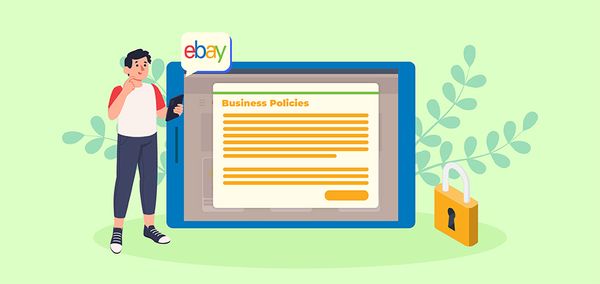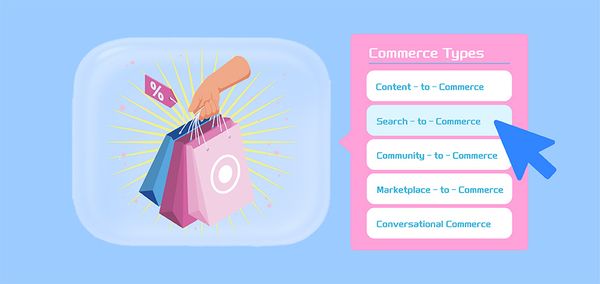Best Fulfillment Centers for Small Business - Don't Miss It

The e-commerce fulfillment sector is growing rapidly, with fulfillment centers cropping up all over the world. Choosing the best fulfillment center for your e-commerce business can be difficult, especially for a small business.
Costs, services, minimum criteria, and account management all differ significantly across suppliers, so selecting the ideal partner necessitates extensive research. So which are the best fulfillment center for small business? Let's find out!
What Is Fulfillment Center
A fulfillment center is a location where a third-party logistics provider (3PL) manages your warehouse, fulfills orders, and coordinates last-mile delivery of your products to the client. You send your products to a fulfillment center and set up a way to notify them of orders, ideally via your e-commerce platform or another order management system (many 3PL providers also have custom software for this).
A fulfillment center allows you to grow your business without having to invest in overhead such as warehouse space or personnel. From the fulfillment center, the logistics provider will store, select, package, and ship your products, and most will also handle returns.
Read more: What Is Fulfillment Center - Everything You Should Know
Fulfillment Center vs Warehouse
The phrases "fulfillment center" and "warehouse" are frequently interchanged. Because many 3PL providers include modest storage as part of their fulfillment center solutions, the phrases might be misleading.
Both are areas where you keep your inventory, but the similarities end there. Long-term vs. short-term inventory storage is the easiest approach to think about the differences here.
| Get Started Now to Grow Your Online Business with the Best AliExpress Dropshipping Tool - DSers! |
- Warehouse: A warehouse is a long-term storage facility for your products. This is where you'd maintain inventory while fulfilling orders personally, for example. Most warehouses will assist you in receiving and storing your product, and some will even allow you to rent space for fulfillment. But, in the end, you will be in charge of choosing, packaging, and shipping.
- Fulfillment center: A fulfillment center will keep your products, but its main goal is to get your products into customers' hands. Your items should ideally be going in and out of a fulfillment center at all times. If you have merchandise that has been lying on their shelf for more than a specific amount of time, certain fulfillment centers will charge you extra costs.
Then, based on the purpose of use, you can easily choose which is better between Fulfillment Center and Warehouse.
What to Consider When Choosing a Fulfillment Center
To choose a proper fulfillment center for small business, you may need to consider many factors as below:
Pricing
A fulfillment provider should provide a cost-effective service with no arising in the form of hidden fees or surcharges. Their prices should be reasonable for the services they provide. It is preferable for a small business or startup to seek service providers who provide lower rates and do not impose minimum volume orders.
Facilities
The fulfillment center’s location is also one of the most important variables to consider. In terms of cost and delivery time, this is critical. As a result, you should look for if the service provider has several storages and delivery facilities. This assures efficient shipment and delivery that meets the needs of your customers.
Your warehouse should be placed in locations where there are more orders, so you can keep your products there and transport orders quickly. With that in mind, it's critical to research and evaluate your data before deciding on a warehouse site.
Software
The UI of your fulfillment services software should not only be simple and easy to use, but it should also offer you reliable data and thorough information on your inventory and shipping process.
In addition, the software should support a wide number of integrations with popular sales channels and platforms. This aids in the promotion and sale of your products in a larger market.
Damages & Insurances
Another thing to think about is how your fulfillment provider handles issues like order damage, faulty shipping, and order returns.
While some businesses incorporate insurance as part of their services, others do not. They'll expect you to get extra insurance, especially if your items are fragile or have high sticker prices. If this service is included in your company's monthly fees, they should be in charge of overseeing and managing the entire process, from the time you get the orders until the time they are delivered to the recipients.
Security
When picking a fulfillment center, make sure it's secure and has a proper security management system in place for inventory storage and packing. This includes not just video surveillance from inside and outside, but also full inventory support and tracking from unloading to packaging to shipment.
5 Best Fulfillment Centers for Small Businesses
The best fulfillment centers for small business provide a combination of cost, experience, and quality assurance. Furthermore, e-commerce fulfillment businesses make it simple to interface with your online store, send orders to the fulfillment firm, and manage your inventory from an online dashboard. Let's take a closer look at who they are.
Shopify Fulfillment
The Shopify Fulfillment Network is one of the best fulfillment center for small business because of its large network of locations, affordable prices, and its integration with Shopify (one of the most well-known eCommerce platforms for many small businesses).
However, there are certain limitations. The biggest one is that, for the time being, Shopify Fulfillment does not work with any firms outside of the United States. Outside of the United States, they only have one facility. Despite this, Shopify can still ship to the majority of other nations.
Prices:
Storage (including customized projects) and the process of choosing, packaging, and shipping are the two types of costs charged by Shopify Fulfillment.
Although there is no particular pricing module stated on the Shopify website, it is inexpensive for all small businesses because it is dependent on the volume sold and the amount of inventory that has to be stored.
Here are some specifics about Shopify Fulfillment's pricing:
- To acquire a custom quotation, you must contact Shopify and complete a simple application procedure.
- A separate pricing scale applies to wholesale orders.
- You can choose to be billed on a per-fulfillment basis.
- Shipping costs are calculated based on the shipping company, destination, and package size.
- For inventory storage, Shopify charges a monthly fee.
- You'll need to talk about specific initiatives in order to account for them in your budget.
ShipBob
ShipBob is also one of the best fulfillment center for small business and startups. Since its inception in 2012, the company has grown from a $5,000 start-up to a sales volume of $10 million in 2018.
ShipBob is an excellent solution for small businesses looking to develop, grow, and profit. The majority of its clients run small eCommerce businesses that sell cosmetics, vitamins, and other products. As a result, ShipBob ensured that the entire procedure is simple and uncomplicated.
Prices:
ShipBob, like a few other e-commerce fulfillment centers, doesn't disclose prices, so you'll have to contact them for a full quote. ShipBob did, however, provide their typical prices for certain common fulfillment tasks:
- Inbound receiving: $35 per shipment, regardless of the number of boxes or pallets.
- Monthly storage: $5 per bin, $10 per shelf, and $40 per pallet, with each pallet allowing up to 2 SKUs.
- Pick-and-pack orders: per quotation, with shipping expenses included in the total price.
- Basic shipping boxes and packing materials: They are provided free of charge; however, bespoke packaging services are available for an additional price.
- Monthly order minimums: 100 orders, or 3 to 4 orders each day on average.
5ShipMonk
ShipMonk is similar to ShipBob in that it has a rapid interaction with all e-commerce platforms, a beautiful inventory automation dashboard, and one of the easiest setups for initiating fulfillment operations.
ShipMonk, in addition to its standard third-party logistics, offers Amazon FBA (Fulfilled By Amazon) prep services, which helps small businesses get started with FBA. Because of its easy web interface, rapid connections with e-commerce systems, and clear pricing, we believe it is one of the finest fulfillment centers for small businesses.
Prices:
Standard fulfillment rates vary by project, however, ShipMonk's website provides the following estimates:
- Picking: Each order costs $2.50. This is for up to 500 orders per month. When you have a bigger volume of orders, the price per order normally drops. After your limit, all picks are $0.50, and branded inserts are $0.20.
- Return processing: $2.00 for each return. Additional goods in the return incur a $0.50 surcharge.
- Storage: The cost of storage is determined by the storage products utilized. Every little container, for example, costs $1 per month. Monthly fees for medium bins are $2. Pallets are available for $20 per month.
- Special projects: There is a $250 minimum pick and pack cost each month with ShipMonk. Special projects cost $45 per labor hour, plus there are extra charges for unloading cargo.
- Packaging materials: From $0.15 to $2.00.
Red Stag Fulfillment
Red Stag Fulfillment offers small businesses a one-of-a-kind opportunity to work with what many perceive to be a small company fulfillment center. They cater to unique fulfillment requirements, provide total price and shipping transparency, and provide low shipping rates for all major carriers. You also receive access to Red Stag's same-day order fulfillment, which allows you to deliver things to clients faster, or at least give them that choice.
WooCommerce and Shopify are two of the most popular e-commerce systems that Red Stag works with. Red Stag appears to be a winner for most small enterprises, with shipment monitoring (given to the merchant and consumers) and cheap shipping labels.
Prices:
The Red Stag website does not provide fee estimates since each retailer must contact the organization for a bespoke price. Here's what we've been informed is put into your final bill to give you a sense of what costs to expect:
- Inbound receiving: $13.25 per pallet; smaller single or multi-box shipments are negotiable.
- Monthly storage: $2 per bin, $15 per pallet, with four SKUs per pallet permitted.
- Order pick-and-pack: The first item costs $2.25 to $2.64, and each additional item costs $0.30.
- Shipping boxes and packing materials: At no extra charge, basic shipping boxes and packing supplies are supplied.
- Shipping fees: FedEx charges are heavily lowered, especially for packages weighing more than five pounds.
- Monthly order minimums: On average, there are 100 orders every day, or around 3 orders per day.
Deliverr
Deliverr uses a method that connects your fulfillment process to a variety of sales channels. Deliverr has a broader number of multi-channel fulfillment choices than its competitors on this list, including Wish, Amazon, eBay, and a variety of additional marketplaces. Deliverr distinguishes apart since all of those orders are consolidated into a single dashboard. You can link with BigCommerce or Shopify and then give consumers who desire it next-day shipping.
Prices:
When it comes to cost, Deliverr appears to be a viable choice for small businesses. Despite the fact that each merchant receives a custom quotation, they provide a cost calculator to help you estimate how much you'll spend based on an Amazon link or a manual product import.
Here are some examples of cost estimates (iPhone cases example):
- Standard fulfillment: $4.26
- eBay Fast Tag: $4.26.
- Wish Fast Tag: $7.52
- Storage Cost (with 50 average monthly units): $1.20 per month.
Final Words
Whether you have just started looking for a fulfillment center for small business or you are one step away from your final decision, you must thoroughly evaluate your possible service providers.
Hopefully, this post has assisted you in narrowing down your options to a fulfillment center that meets your demands and falls within your budget. If you are looking for other helpful information for your business development, check out on DSers Blog.













 Company
Company
 Why Choose DSers
Why Choose DSers
 Blog
Blog
 Help Center
Help Center




 Live Chat
Live Chat